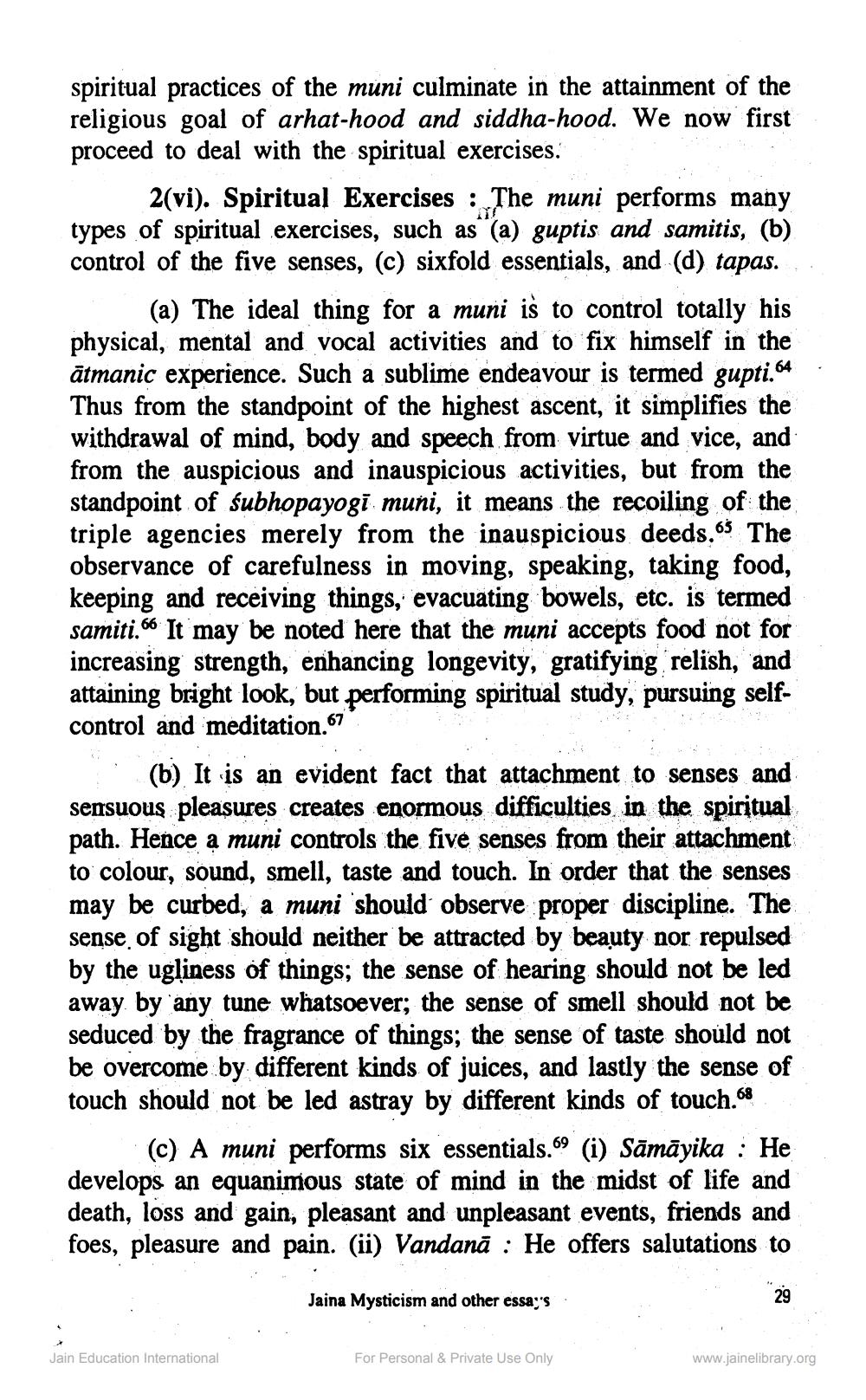________________
spiritual practices of the muni culminate in the attainment of the religious goal of arhat-hood and siddha-hood. We now first proceed to deal with the spiritual exercises.
2(vi). Spiritual Exercises : The muni performs many types of spiritual exercises, such as (a) guptis and samitis, (b) control of the five senses, (c) sixfold essentials, and (d) tapas.
(a) The ideal thing for a muni is to control totally his physical, mental and vocal activities and to fix himself in the ātmanic experience. Such a sublime endeavour is termed gupti.64 Thus from the standpoint of the highest ascent, it simplifies the withdrawal of mind, body and speech from virtue and vice, and from the auspicious and inauspicious activities, but from the standpoint of subhopayogi muni, it means the recoiling of the triple agencies merely from the inauspicious deeds.65 The observance of carefulness in moving, speaking, taking food, keeping and receiving things, evacuating bowels, etc. is termed samiti.66 It may be noted here that the muni accepts food not for increasing strength, enhancing longevity, gratifying relish, and attaining bright look, but performing spiritual study, pursuing selfcontrol and meditation.67
(b) It is an evident fact that attachment to senses and sensuous pleasures creates enormous difficulties in the spiritual path. Hence a muni controls the five senses from their attachment to colour, sound, smell, taste and touch. In order that the senses may be curbed, a muni should observe proper discipline. The sense of sight should neither be attracted by beauty nor repulsed by the ugliness of things; the sense of hearing should not be led away by any tune whatsoever; the sense of smell should not be seduced by the fragrance of things; the sense of taste should not be overcome by different kinds of juices, and lastly the sense of touch should not be led astray by different kinds of touch.68
(c) A muni performs six essentials.69 (i) Sāmāyika : He develops an equanimous state of mind in the midst of life and death, loss and gain, pleasant and unpleasant events, friends and foes, pleasure and pain. (ii) Vandanā : He offers salutations to
Jaina Mysticism and other essay's
"29
Jain Education International
For Personal & Private Use Only
www.jainelibrary.org




